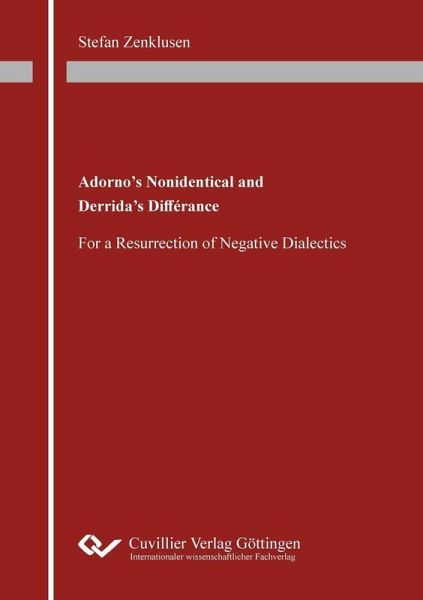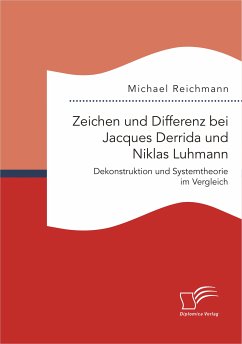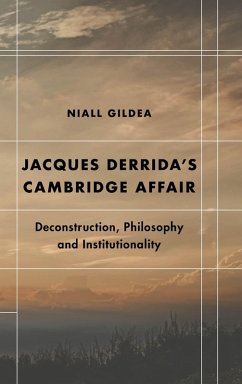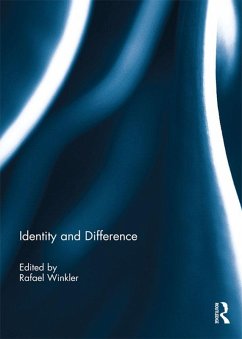
Adorno's Nonidentical and Derrida's Différance (eBook, PDF)
For a Resurrection of Negative Dialectics
Versandkostenfrei!
Sofort per Download lieferbar
Statt: 79,08 €**
39,50 €
inkl. MwSt. und vom Verlag festgesetzt.
**Preis der gedruckten Ausgabe (Gebundenes Buch)
Alle Infos zum eBook verschenkenWeitere Ausgaben:

PAYBACK Punkte
0 °P sammeln!
The virulent anti-Hegelianism of French poststructuralism and its (difficult) confrontation with Jürgen Habermas has long obscured the closeness of Jacques Derrida's “différance” to Theodor W. Adorno's “Nonidentical.” Taking the overarching theme of “identity and difference” as a guide, we can peel apart what unites and separates these two thinkers. In so doing, certain “de-realizing” effects of Derrida's entrapment in signs reveal themselves. By contrast, Adorno's social and cultural diagnosis, when extrapolated to a post-Fordian conte...
The virulent anti-Hegelianism of French poststructuralism and its (difficult) confrontation with Jürgen Habermas has long obscured the closeness of Jacques Derrida's “différance” to Theodor W. Adorno's “Nonidentical.” Taking the overarching theme of “identity and difference” as a guide, we can peel apart what unites and separates these two thinkers. In so doing, certain “de-realizing” effects of Derrida's entrapment in signs reveal themselves. By contrast, Adorno's social and cultural diagnosis, when extrapolated to a post-Fordian context is astonishingly fruitful. Attempts to trivialize negative dialectics as a model of intellectual self-understanding from a past age or as an esthetic reserve of ways of life are untenable.
Dieser Download kann aus rechtlichen Gründen nur mit Rechnungsadresse in A, B, BG, CY, CZ, D, DK, EW, E, FIN, F, GR, HR, H, IRL, I, LT, L, LR, M, NL, PL, P, R, S, SLO, SK ausgeliefert werden.













